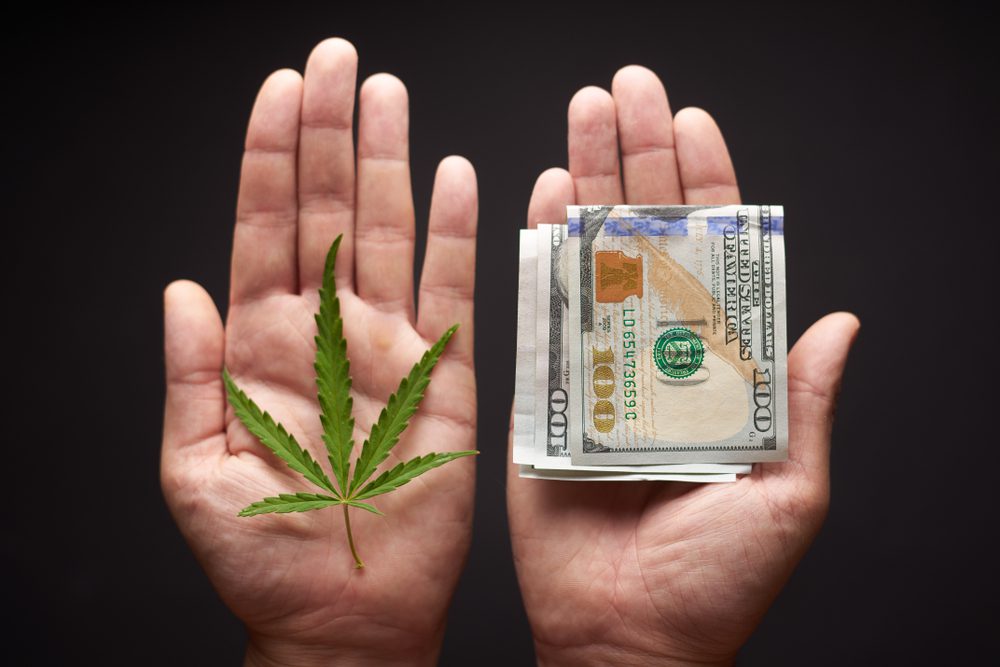The human face is a canvas, a tapestry woven with stories and experiences. Yet, unwanted blemishes like dark spots can cast a shadow over its natural radiance. These hyperpigmentation concerns, while common, can be a source of frustration. Here at wellhealthorganic.com, we believe in harnessing the power of nature to cultivate a healthy, glowing complexion. Today, we embark on a journey to unveil the secrets behind dark spots and explore the potential of lemon juice as a natural remedy for achieving an even-toned visage.
Understanding the Shadows: What Causes Dark Spots?
Before we delve into the realm of natural solutions, it’s crucial to comprehend the root causes of dark spots. These hyperpigmented areas arise when melanin, the pigment responsible for skin color, is produced in excess. Several factors can trigger this overproduction, including:
Sun Exposure:
Ultraviolet (UV) rays from the sun are a primary culprit. UV radiation disrupts the skin’s natural melanin production process, triggering an overproduction in certain areas. This leads to the formation of dark spots, particularly for those with fairer skin or a history of sunburns. Sunburns damage skin cells, and as the skin heals, it may overproduce melanin in an attempt to repair the damage, resulting in hyperpigmentation.
Hormonal Fluctuations:
Shifts in hormone levels, especially during pregnancy, menstruation, or while taking birth control pills, can disrupt melanin production and cause pigmentation issues. These hormonal fluctuations can trigger the formation of melasma, also known as the “mask of pregnancy,” characterized by symmetrical patches on the cheeks and forehead. Understanding these hormonal influences can empower you to tailor your skincare routine accordingly, potentially mitigating the appearance of hyperpigmentation.
Skin Injuries:
Wounds, acne scars, and burns can leave behind dark spots as the skin heals, known as post-inflammatory hyperpigmentation. This occurs when the body produces excess melanin in an attempt to repair the damaged area, resulting in darker patches that can be particularly noticeable on individuals with deeper skin tones. While these spots often fade over time, some may persist, prompting many to seek solutions for achieving a more even complexion.
Ageing:
As we mature, melanin production can become uneven, resulting in the appearance of age spots. These spots, also known as solar lentigines, are typically flat and brown and often cluster on sun-exposed areas like the face, hands, and forearms. Understanding the underlying causes of dark spots, whether sun damage, hormonal fluctuations, or age-related changes, empowers us to develop targeted strategies for achieving a more even and luminous complexion.
The Allure of Citrus: Can Lemon Juice Lighten Dark Spots?
Lemon juice, a readily available kitchen staple, has been touted as a natural remedy for various skin concerns, including dark spots. Its allure lies in its inherent citric acid content. Citric acid possesses mild bleaching properties, potentially aiding in the lightening of hyperpigmentation. However, the effectiveness of lemon juice for dark spots remains a subject of ongoing debate.
Harnessing the Power of Lemon Juice: A Prudent Approach
While lemon juice might offer some lightening benefits, it’s essential to exercise caution when incorporating it into your skincare routine. Here’s a roadmap to navigate the potential of lemon juice safely:
- Dilution is Key: The acidity of lemon juice can be harsh on the skin. To mitigate this, dilute fresh lemon juice with an equal amount of water or soothing ingredients like honey or aloe vera gel before application.
- Patch Testing is Mandatory: Before applying any new substance to your face, conduct a patch test on a small, inconspicuous area like your inner forearm. Monitor the area for 24 hours. If you experience any irritation, redness, or burning, discontinue use immediately.
- Limited Sun Exposure is Paramount: Lemon juice can increase sun sensitivity. When using lemon juice, it’s crucial to meticulously apply sunscreen with SPF 30 or higher daily, even on cloudy days.
- Consistency is Crucial: The lightening effects of lemon juice, if any, are likely to be subtle and gradual. Consistent use over several weeks might be necessary to observe any noticeable improvement.
Natural Allies in the Battle Against Dark Spots
While the efficacy of lemon juice for dark spots warrants further investigation, nature offers a bounty of other ingredients with well-established skin-brightening properties. Here are some natural alternatives to consider:
- Kojic Acid: Derived from fungi, kojic acid is a potent tyrosinase inhibitor, an enzyme involved in melanin production. Studies suggest its effectiveness in reducing hyperpigmentation.
- Licorice Root Extract: This extract boasts anti-inflammatory and skin-lightening properties. It can help fade dark spots and promote a more even skin tone.
- Vitamin C: A powerful antioxidant, vitamin C can impede melanin production and combat free radical damage that contributes to hyperpigmentation.
A Holistic Approach to Flawless Skin
While natural remedies like lemon juice can be incorporated into your skincare regimen, achieving a radiant, even-toned complexion requires a multifaceted approach. Here are some additional tips to consider:
Sun Protection is Non-Negotiable:
Sun damage is a leading cause of dark spots, wreaking havoc on melanin production and accelerating the formation of these hyperpigmented patches. To shield your skin and prevent future blemishes, make sunscreen a non-negotiable part of your daily skincare routine. Reapply every two hours, and even more frequently after sweating or swimming, to ensure comprehensive protection. Remember, sunscreen is your armor against the sun’s harsh rays, safeguarding your skin’s health and promoting a luminous complexion.
Exfoliation is Essential:
Regular exfoliation helps remove dead skin cells that can contribute to a dull appearance and impede the effectiveness of lightening treatments. These cells can form a barrier on the skin’s surface, hindering the penetration of brightening ingredients. Opt for gentle exfoliating products suited to your skin type, whether it’s a chemical exfoliant with AHAs like lactic acid for dry skin or a physical scrub with finely ground oats for oilier complexions. Remember, consistency is key, so incorporate exfoliation into your routine 2-3 times a week for optimal results.
Hydration is Paramount:
A well-hydrated complexion is essential for overall skin health. Aim to consume eight glasses of water daily, adjusting based on your activity level and climate. Look for moisturizers formulated with hyaluronic acid, ceramides, or other ingredients that attract and retain moisture. These hydrating heroes will plump up your skin cells, giving your face a dewy, healthy glow and potentially minimizing the appearance of dark spots by promoting a more even skin texture.
Seek Professional Guidance:
If you’re concerned about dark spots or other skin issues, consulting a dermatologist is recommended. They can diagnose the underlying cause and recommend a personalized treatment plan that incorporates the most effective lightening strategies, whether natural remedies, medical-grade topicals, or in-office procedures. This ensures a safe and targeted approach to achieving your desired results.
Advanced Strategies for Exalting Your Visage
Crafting a Personalized Regimen:
The journey towards a flawless complexion is unique. Here are some pointers to personalize your approach:
- Identify Your Skin Type: Understanding your skin type – oily, dry, combination, or sensitive – is crucial. Opt for lemon juice dilutions or natural alternatives suited to your specific needs. For instance, individuals with dry skin might benefit from diluting lemon juice with honey, while those with oily skin might find success with water dilution.
- Nighttime is Prime Time: Nighttime allows your skin to undergo its natural repair processes. Consider incorporating lemon juice or other lightening treatments into your nighttime skincare routine for potentially enhanced benefits.
- Listen to Your Skin: Throughout this process, pay close attention to your skin’s response. If you experience any irritation, discontinue use and explore gentler alternatives. Remember, consistency is key, but so is prioritizing the health and well-being of your skin.
Synergistic Solutions: Blending Natural Remedies
Nature provides a treasure trove of ingredients that can be combined to create potent concoctions for addressing dark spots. Here are some potential pairings to explore:
- Lemon Juice and Honey: Honey’s natural humectant properties can counteract the drying effects of lemon juice, creating a more balanced and hydrating treatment.
- Lemon Juice and Yogurt: Yogurt’s lactic acid offers gentle exfoliation, potentially aiding in the removal of dead skin cells and enhancing the penetration of lemon juice. Opt for plain yogurt with no added sugars or artificial flavors.
- Turmeric and Lemon Juice: Turmeric boasts anti-inflammatory and skin-brightening properties. Combining it with diluted lemon juice can create a potent lightening mask. However, be mindful of turmeric’s staining properties and protect surfaces accordingly.
Important Considerations and Safety Precautions
While natural remedies can be enticing, it’s vital to prioritize safety. Here are some additional precautions to remember:
- Discontinue Use if Irritation Occurs: If you experience any redness, burning, or stinging after applying lemon juice or any other natural remedy, discontinue use immediately.
- Consult a Dermatologist for Stubborn Spots: If your dark spots are persistent or unresponsive to natural treatments, consult a dermatologist. They can assess your specific situation and recommend more potent solutions.
- Embrace Patience: Remember, achieving a radiant complexion is a marathon, not a sprint. Be patient with the process and consistent with your skincare routine.
The Final Chapter: Unveiling Your Inner Radiance
Dark spots can be a source of frustration, but they needn’t define your complexion. By harnessing the power of natural remedies, adopting a holistic approach to skincare, and prioritizing safety, you can embark on a journey toward a more even-toned and radiant visage. Remember, true beauty lies not just in the absence of flaws, but in embracing the unique story etched upon your skin.
Visit More Tips: Click Now

Frequently Asked Questions: Unveiling the Secrets to Flawless Skin
1. Is lemon juice effective for all types of dark spots?
The effectiveness of lemon juice for dark spots can vary. While some anecdotal evidence suggests potential benefits, more scientific research is needed. It might be more effective for certain types of hyperpigmentation, like sun spots, compared to others.
2. Can lemon juice irritate my skin?
Lemon juice possesses citric acid, which can be harsh on sensitive skin. Patch testing and dilution are crucial to minimize irritation.
3. How often can I use lemon juice on my dark spots?
Start with once or twice a week, monitoring your skin’s response. If no irritation occurs, you might gradually increase frequency.
4. What are some natural alternatives to lemon juice for dark spots?
Kojic acid, licorice root extract, and vitamin C serums are some well-researched options with skin-brightening properties.
5. Is it safe to use lemon juice with other skincare products?
Consult a dermatologist before combining lemon juice with other actives, especially exfoliants or retinols, as it can increase sensitivity.
6. How long will it take to see results with lemon juice?
Be patient! It can take several weeks of consistent use to observe any lightening effects, if any.
7. Should I wear sunscreen while using lemon juice?
Absolutely! Lemon juice can increase sun sensitivity. Daily sunscreen use with SPF 30 or higher is paramount.
8. What if my dark spots are persistent or worsening?
If your dark spots don’t respond to natural remedies or worsen, consult a dermatologist. They can diagnose the underlying cause and recommend more targeted treatments.
9. Are there any side effects to using lemon juice on my face?
Potential side effects include dryness, irritation, and increased sun sensitivity. Discontinue use if you experience any discomfort.
10. Can lemon juice lighten acne scars?
Lemon juice’s effects on acne scars are inconclusive. While it might offer mild lightening, it’s unlikely to address deeper scarring. Consult a dermatologist for targeted scar treatments.
11. Is it safe to use lemon juice around my eyes?
The delicate skin around the eyes is more prone to irritation. It’s generally not recommended to use lemon juice in this area.
12. Can I use bottled lemon juice instead of fresh?
Freshly squeezed lemon juice is preferred for its potency. However, if using bottled, choose one with minimal preservatives and additives.
13. Are there any risks to using expired lemon juice?
Expired lemon juice might lose its potency and could harbor bacteria. Opt for fresh or unopened, commercially bottled lemon juice.




